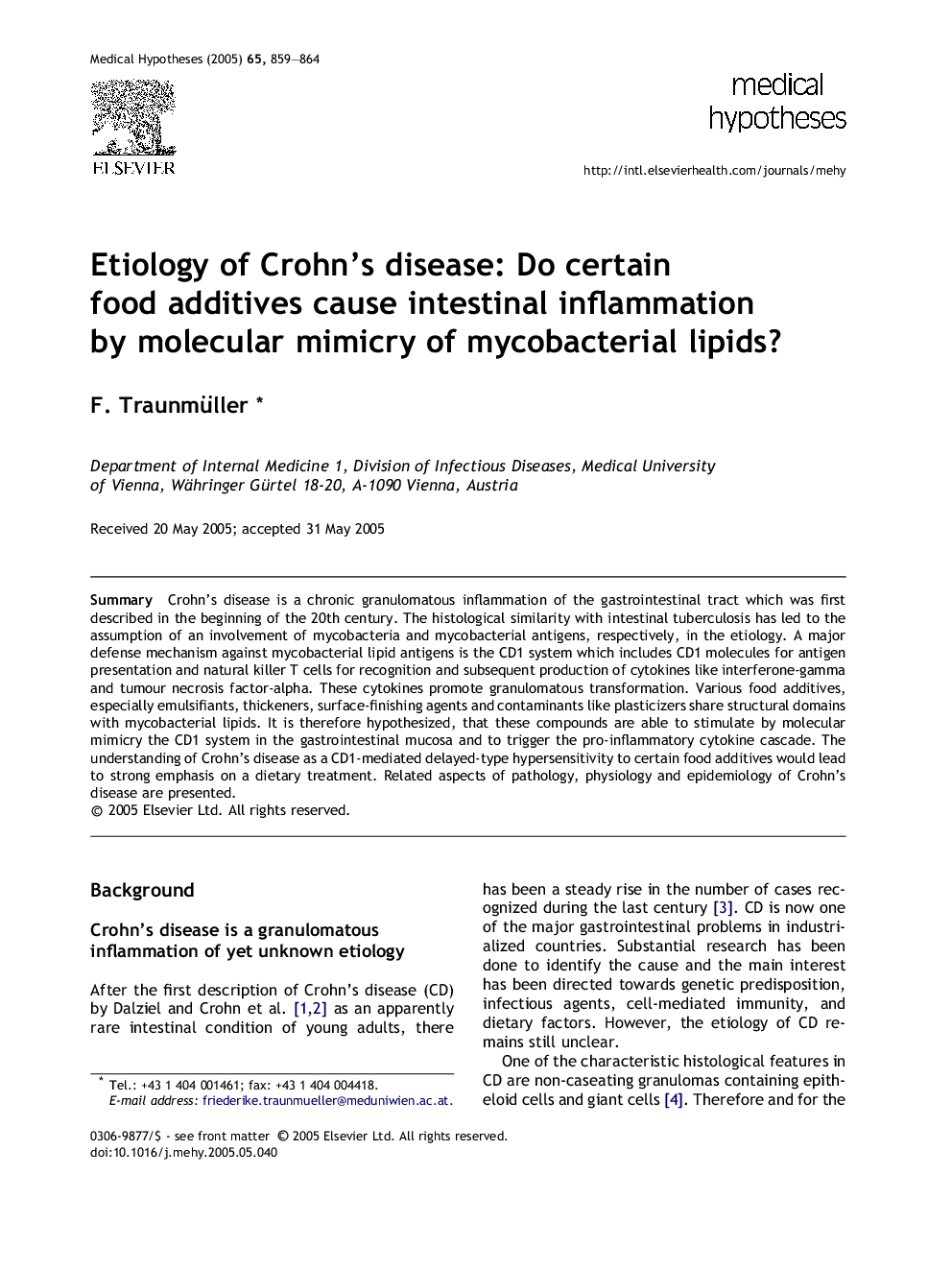| کد مقاله | کد نشریه | سال انتشار | مقاله انگلیسی | نسخه تمام متن |
|---|---|---|---|---|
| 8996622 | 1115138 | 2005 | 6 صفحه PDF | دانلود رایگان |
عنوان انگلیسی مقاله ISI
Etiology of Crohn's disease: Do certain food additives cause intestinal inflammation by molecular mimicry of mycobacterial lipids?
دانلود مقاله + سفارش ترجمه
دانلود مقاله ISI انگلیسی
رایگان برای ایرانیان
موضوعات مرتبط
علوم زیستی و بیوفناوری
بیوشیمی، ژنتیک و زیست شناسی مولکولی
زیست شناسی تکاملی
پیش نمایش صفحه اول مقاله

چکیده انگلیسی
Crohn's disease is a chronic granulomatous inflammation of the gastrointestinal tract which was first described in the beginning of the 20th century. The histological similarity with intestinal tuberculosis has led to the assumption of an involvement of mycobacteria and mycobacterial antigens, respectively, in the etiology. A major defense mechanism against mycobacterial lipid antigens is the CD1 system which includes CD1 molecules for antigen presentation and natural killer T cells for recognition and subsequent production of cytokines like interferone-gamma and tumour necrosis factor-alpha. These cytokines promote granulomatous transformation. Various food additives, especially emulsifiants, thickeners, surface-finishing agents and contaminants like plasticizers share structural domains with mycobacterial lipids. It is therefore hypothesized, that these compounds are able to stimulate by molecular mimicry the CD1 system in the gastrointestinal mucosa and to trigger the pro-inflammatory cytokine cascade. The understanding of Crohn's disease as a CD1-mediated delayed-type hypersensitivity to certain food additives would lead to strong emphasis on a dietary treatment. Related aspects of pathology, physiology and epidemiology of Crohn's disease are presented.
ناشر
Database: Elsevier - ScienceDirect (ساینس دایرکت)
Journal: Medical Hypotheses - Volume 65, Issue 5, 2005, Pages 859-864
Journal: Medical Hypotheses - Volume 65, Issue 5, 2005, Pages 859-864
نویسندگان
F. Traunmüller,